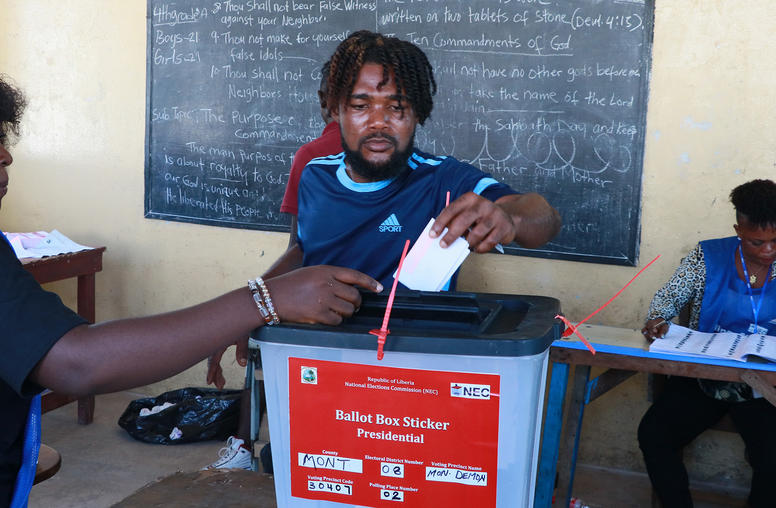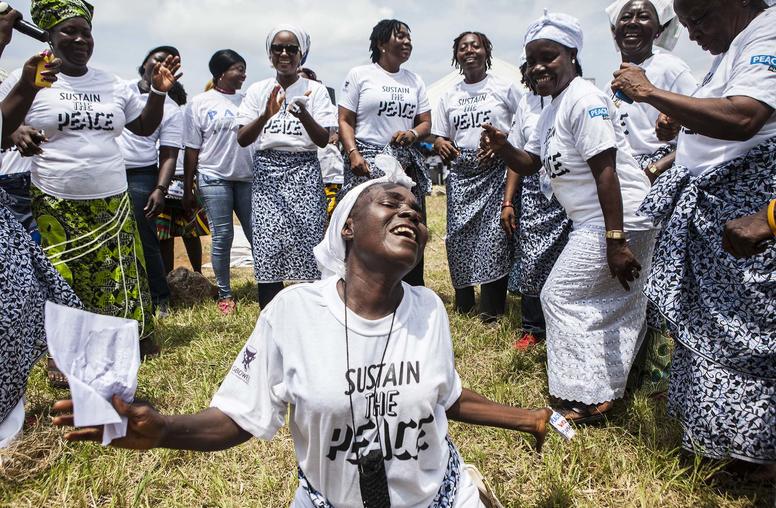Liberian President Sirleaf Speaks on U.S.’s Global Role
Nobel Peace Laureate Also Addresses Her Country’s Historic Upcoming Elections
Read the Event CoverageLiberian President Ellen Johnson Sirleaf, Africa’s first elected female head of state and a Nobel Peace Prize recipient, will soon mark her country’s first peaceful, democratic handover of a head of state to a successor since 1944. On September 25, the U.S. Institute of Peace, the International Republican Institute, the International Foundation for Electoral Systems, the National Democratic Institute, and the National Endowment for Democracy held a public address by President Sirleaf on Capitol Hill. Senator Chris Coons was the honorary host of the event.
Liberia is scheduled to hold elections on October 10, paving the way for President Sirleaf to step down in January, after serving two six-year terms in office. She visited Washington in September as she traveled to New York for the annual opening of the United Nations General Assembly.
President Sirleaf reflected on U.S. support for Liberia under her administration, in aiding struggles such as the country’s transition from civil war and the 2014 Ebola epidemic, which she addressed in a previous USIP co-sponsored event in 2015. She also called on the U.S. to continue its support for democracy, human rights and good governance in Africa and around the world.
Continue the conversation on Twitter at #SirleafDC.
Keynote Address
Her Excellency Ellen Johnson Sirleaf
President of Liberia
Panel Participants
Senator Christopher Coons
Delaware
Representative Ed Royce
California, 39th District
Welcoming Remarks
Ambassador William Taylor
Executive Vice President, U.S. Institute of Peace
Moderator
Tami Hultman
Chief Content and Strategy Officer, AllAfrica Global Media


